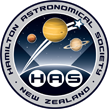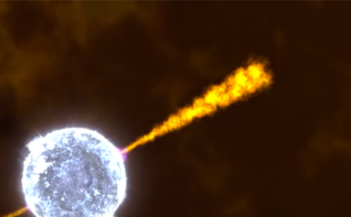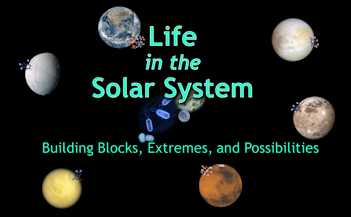Monthly Members Night (click for details)
Monthly Members’ Night - second Wednesday of each month except January.
Tonight - A presentation, followed by informal chat over tea or coffee. Telescope viewing possible afterwards depending on weather and availablilty of scope operators.
Tonight’s Talk
Gamma Ray Bursts
Speaker: Nick Odom (from Hamilton Astronomical Society)
Gamma ray bursts were discovered serendipitously in the 1960s. They remained a mystery for many years. Since 1997 satellite technology has enabled their nature to be better understood, thereby providing insight into the most distant and energetic explosions in the universe.
BHT Lecture
For details and to register a seat, please click: www.has.org.nz/bht-registration-2026
MEMBERS EVENT - Rocket Day (note - now 1st Feb)
Members - please note change of date. Was previously 31st January, now changed to February 1st.
Please check emails for details about times and venue.
Monthly Members Night (click for details)
Monthly Members’ Night - second Wednesday of each month except January.
Tonight - A live presentation via video link, followed by informal chat over tea or coffee. Telescope viewing possible afterwards depending on weather and availablilty of scope operators.
Tonight’s Talk
Special Guest Speaker – Live via Video
Dr. Ariel Graykowski from SETI
(SETI: Search for Extraterrestrial Intelligence)
This December, instead of our annual quiz, we are delighted to welcome a special guest speaker, live by video – Dr. Ariel Graykowski from the SETI Institute. Ariel will share insights from her research, including studies of comets. We will also learn about the interstellar comet Comet 3I/Atlas.
Dr. Ariel Graykowski is a research scientist at the SETI Institute, where she leads the Unistellar Citizen Science Comet Program. She studies the evolving activity of comets, asteroids, and interstellar visitors using a global network of telescopes operated by citizen astronomers. Her work bridges professional and public astronomy in the exploration of our solar system and beyond.
Monthly Members Night (click for details)
Monthly Members’ Night - second Wednesday of each month except January.
Tonight - A presentation, followed by informal chat over tea or coffee. Telescope viewing possible afterwards depending on weather and availablilty of scope operators.
Tonight’s Talk
Life in the Solar System:
ICY MOONS and ALIEN OCEANS.
Speaker: Jonathan Park (from Hamilton Astronomical Society)
Tonight we voyage to the frozen worlds orbiting Jupiter, Saturn and beyond to explore the secret oceans hidden beneath their icy crusts. We’ll ask whether these subsurface seas could support life - not humans, but hardy microbes - and whether past conditions might have allowed life to begin. You’ll see what those oceans might be like: their temperature, salinity, energy sources, and how similar or different they are from Earth’s oceans. Images and animations will help us compare environments and make this a fun visual experience. Fun fact: the total number of ocean worlds in the Solar System is likely to be over 14!
Event for Members
Event for new members
HAS Members - please see email newsletter for details, or the members’ section of the website.
Monthly Members Night (click for details)
Monthly Members’ Night - second Wednesday of each month except January.
Tonight - A presentation, followed by informal chat over tea or coffee. Telescope viewing possible afterwards depending on weather and availablilty of scope operators.
Tonight’s Talk
Life in the Solar System:
Building Blocks, Extremes, and Possibilities
Speaker: Jonathan Park (from Hamilton Astronomical Society)
Are we alone, or might we share our Solar System with microbes? Tonight, we’ll explore one of the most compelling questions in science: could life exist elsewhere in the Solar System?
If we do find life beyond Earth, it's unlikely to be anything more advanced than single-celled microbes - though the possibility of simple multicellular life can't be ruled out. We'll begin by asking the deceptively simple question: What is life? From there, we'll examine the building blocks of Earth life and whether they are present beyond our planet. We'll also consider how life may have started here on Earth, and briefly highlight extraterrestrial environments where some Earth microbes could, in principle, survive. Extremophiles - microbes that thrive in environments lethal to most organisms - show us that life can adapt to astonishingly harsh conditions. This opens the door to the possibility that microbial life could survive in places once thought to be uninhabitable.
Putting this all together, we will examine the evidence for ancient microbial life on Mars and consider whether life could exist there now.
Looking ahead, in November we’ll continue this theme by diving into some of the many alien oceans of the Solar System - some of the most promising places to search for life.
Public Night (note the later start time 8:30 pm)
As daylight saving will have started now, the start time is 8:30 pm.
The gates and doors will be open from 8:10 pm.
Members Night (note different venue! click for details)
Important: September’s members’ night will NOT be at the observatory. Please keep an eye out for emails regarding the venue.
Tonight’s Talk
Stellar & Exoplanetary Spectroscopy
Speaker: Dr Chris Benton (from Auckland Astronomical Society)
Tonight, you will learn how astronomers read the light from stars to measure their temperature, composition, rotation and much more, plus the atmospheres of distant exoplanets.
We start by explaining how and why atoms absorb and emit light at specific wavelengths before discussing how a prism splits light into its various colours to determine a star’s many properties. This will include a demonstration of a prism and calculating our Sun’s surface temperature, plus images and step-by-step analysis of spectra taken with a local amateur spectrograph. Our discussions will then delve deeper into measuring magnetic fields and surface gravity of stars using this simple technique, before discussing the process and frustrations with analysing the atmospheres of planets beyond our solar system.





